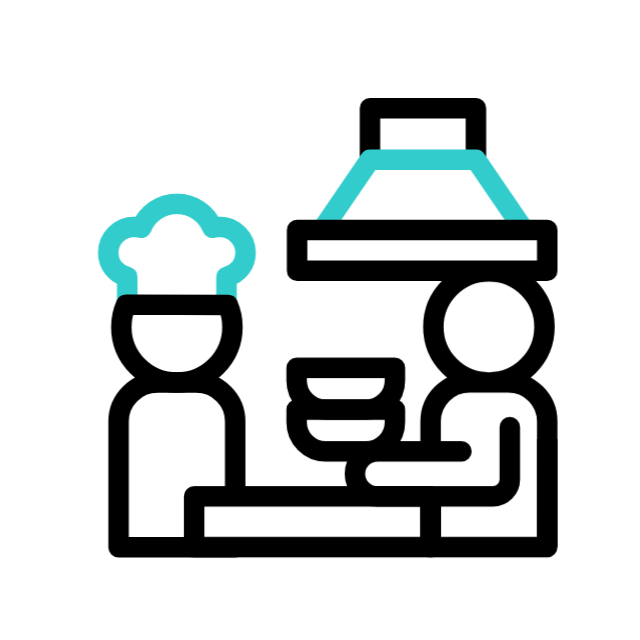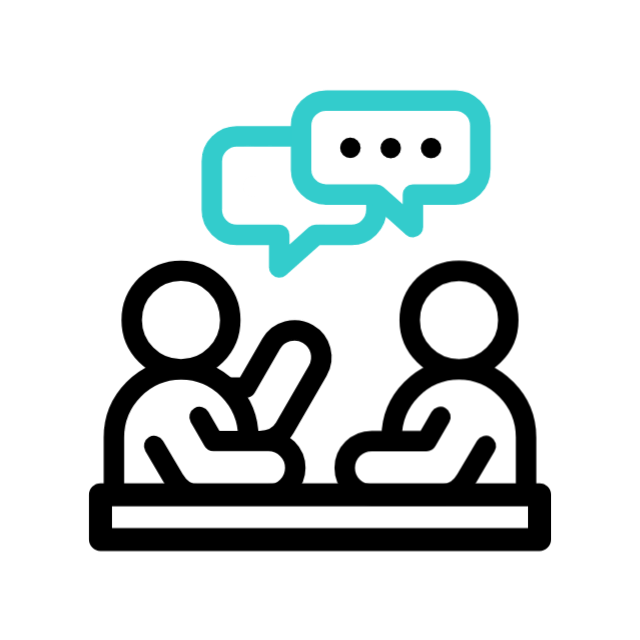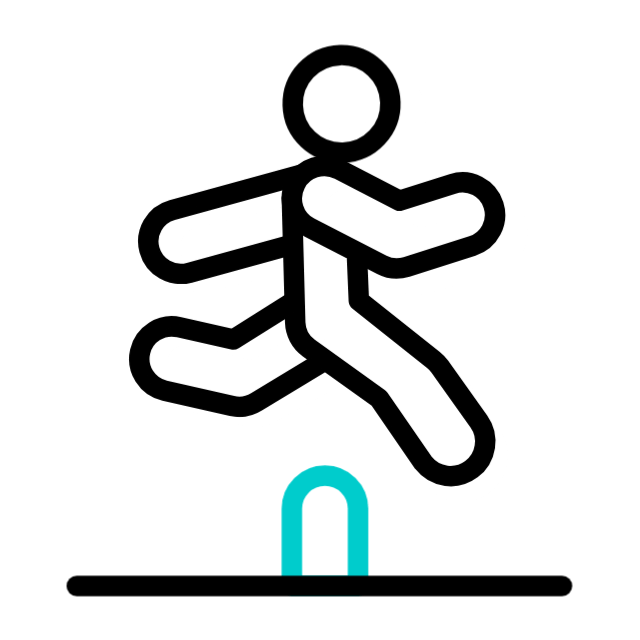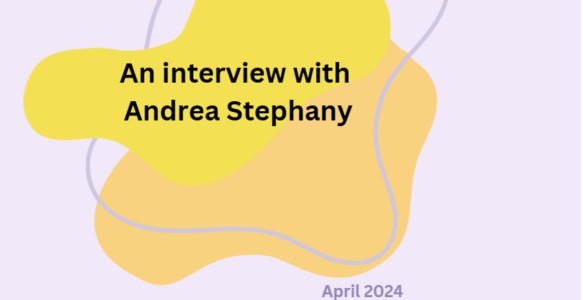Andrea Stephany Diaz, CEO of OncoSwab, founded her company at 24 years old after working as both an academic and industrial researcher.
Andrea Stephany holds a degree in Biochemistry from Universitat Autònoma de Barcelona, and carried out her thesis on a gene therapy approach for cystic fibrosis treatment. Her research utilized cystic fibrosis transmembrane conductance regulator (CFTR) mRNA delivered via nanocarriers, enhancing treatment efficacy and safety over viral vectors known for their immunogenic and carcinogenic risks. During her academic journey, she engaged in an exchange program at Brooklyn University. Following her Bachelor’s degree, Andrea pursued a Master’s in Molecular Biotechnology from the University of Barcelona, specializing in Tissue and Cell Engineering and Molecular Diagnosis. She gained practical experience as an intern at the Institute of Materials Science in Barcelona for eight months, where she ended up being hired as a Research Assistant, collaborating with the Nanoparticles and Nanocomposites (N&N) group. Her work contributed to the Sprint4Sepsis project, aiming to develop a therapeutic product derived from mesenchymal stem cell components to mitigate sepsis-related injuries.
Upon graduation, Andrea Stephany entered academia as a researcher at her alma mater, where she previously interned. Specializing in Nanomedicine, she dedicated ten months to research. Her projects included ongoing contributions to Sprint4Sepsis and initiation of MAGBBRIS. The latter aimed to promote angiogenesis in stroke patients deprived of blood supply due to a thrombus or a hemorrhage. With growing insight into research, Andrea contemplated a transition to industrial research, prompting her to explore new career opportunities.
Industrial research
“I have a good hack to find a job on Linkedin, which funny enough, I learned on TikTok”
Rather than sending generic inquiries about job positions, she sought connections with whom she had similar paths. Focusing on research roles in companies of interest, she filtered individuals who were alumni of her university in Barcelona. Identifying two such connections in the company she was interested in, Andrea reached out for advice and guidance. Their insights proved invaluable, offering application tips and endorsing her candidacy, ultimately leading to her successful recruitment.
“People get a lot of messages, so you need to stand out and find a common pattern.”
Andrea Stephany had started looking for positions in industry, after working in academic research at the Institute of Materials Science, in Barcelona, since she found the process of putting the findings to use to be very slow, sometimes taking ten or fifteen years. However, working in industry was not as exciting and fast paced as she had initially thought. Despite the need to bring products to the market in a relatively short time, motivated by financial interests, industrial research can become quite repetitive, given the QA/RA requirements to meet defined standards. Having joined the R&D team at a contract research organization (CRO) in Hamburg, Germany, Andrea had expected there to be more space for creativity and innovation, yet it felt more like commissioned work.
 “I thought it would be more similar to research, as the name implied. However, I felt like a cook: I was given a recipe and I simply had to follow instructions”.
“I thought it would be more similar to research, as the name implied. However, I felt like a cook: I was given a recipe and I simply had to follow instructions”.
There was much less troubleshooting involved or problem-solving skills used. In addition to the systematic approach she had to take when working, she felt like there was no place for innovation at her role. After founding her own company with Dr. Pablo Lara, Andrea Stephany has had significantly more leeway for creativity.
Founding a startup
OncoSwab, founded in 2023, focuses on non-invasive cancer detection. Specifically, early lung cancer screening from non-invasive patient samples, that could be easily collected at the general practitioner’s office for a rapid and convenient first test.
“In my company, I feel like I can use all of my skills. My co-founder and I were the whole company before; now we’ve started outsourcing a bit more.”
In its early stages, OncoSwab initially operated without funding or support. During the first year, the focus was on establishing viability before gradually seeking support from accelerators in the US and in Switzerland, such as DayOne Tech. Subsequently, they secured their first sponsor followed by funding from private investors. Additionally, OncoSwab received backing from friends and family, bolstering their progress.
Networking ![]()
“Initially, I made numerous attempts at networking, though perhaps not in the most effective way. I went to too many events. Entrepreneurship events, meet-ups, startup events, congresses… I flew to the United States and flew from one place to the other for three months, when originally I was supposed to stay in New York for two weeks. Back then, that was crucial to grow my network (which was close to 0, given how early in my career I was). Now I’m more selective.”
On that trip to the US, Andrea Stephany ended up traveling to Boston, Hanover – where she visited Dartmouth University – , Washington D.C., Miami and the Silicon Valley in California.
There, she met people who would introduce her to more people. And by following this chain of connections she started building her network.
“I started at twenty-four. I didn’t have a network then, so I had no idea how to start a company. “
As she got better at networking, she realized that to make useful and meaningful connections, it’s important to find mentors you can learn from, and put the effort in to keep the connection alive long term.
“As I transitioned from academic life to the corporate world, I found myself grappling with the direction of my career path. In an attempt to seek guidance, I reached out to professionals in sales and marketing to learn from their experience in their positions.”
She reached out to the Head of Marketing at Novartis, and told him she was a recent graduate and was trying to figure out what she wanted to do, and asked if he’d be open to have a thirty minute chat.
 “People hardly say no to that. You’d be surprised by how much most people want to help.”
“People hardly say no to that. You’d be surprised by how much most people want to help.”
After exchanging some thoughts, he explained to her what he thought she would be a good fit for. He even introduced her to some professionals in the particular positions so she could learn more. That’s one of the many ways to form a mentorship with someone more experienced in the field. Another, more organic way, is to ask for advice from your professors in college. Some, you meet at events and through connections.
“Sometimes you bond with someone who sees your potential and wants to help you grow as a professional.”
Andrea mentions she’s lucky to count with mentors with whom she meets on a monthly or even weekly basis. She also says some industry leaders are directly involved in her company in the form of official advisors.
OncoSwab ![]()
Since OncoSwab is still in the R&D phase, most information about the research is confidential as of now. The overall goal of the company is to make cancer detection as barrier-free as possible, starting with lung cancer. The non-invasive test currently being developed aims to facilitate early detection and screening, crucial for effective cancer treatment, particularly in lung cancer, the deadliest cancer globally, surpassing breast and prostate cancer. Furthermore, prostate, breast and colon cancer all have existing and available methods to perform early screening. This is exactly what motivated Andrea and her team to work on preventive care, as opposed to treatments. As of today, no European country has an official lung cancer screening program, indicating that significant efforts are needed to establish early detection measures in this area.
A mission this big requires a great deal of collaboration; CSEM in Switzerland is the main partner for computational biology and machine learning purposes, and hospitals such as Inselspital Bern and other hospitals in the US, Spain and the Netherlands have expressed interest in collaborating with the company.
“My co-founder and I are both scientists. Dr. Lara has a PhD in pharmacology and over ten years of cancer research experience. We’re combining everybody’s expertise as well as count with our advisors particularly for the business aspect – in a biotech company, it’s not all about the science. ”
![]() Apart from being a biotech entrepreneur, Andrea is also a science communicator. Back when she was in college, she started a YouTube channel, DNAndrea, which she created with a mission to make biotechnology more approachable for the general audience. Her channel led her to collaborate with top research institutions, such as the Spanish National Research Council. Today, she uses her channel as a way to share her journey as a biotech startup founder.
Apart from being a biotech entrepreneur, Andrea is also a science communicator. Back when she was in college, she started a YouTube channel, DNAndrea, which she created with a mission to make biotechnology more approachable for the general audience. Her channel led her to collaborate with top research institutions, such as the Spanish National Research Council. Today, she uses her channel as a way to share her journey as a biotech startup founder.
“I’m trying to leverage the skills that are required to translate complicated science into information that’s digestible and useful to the public.”
Side Quest : 
Host : How do you think we could slowly deter young people from starting to smoke?
Andrea Stephany : Even now, people are generally less attracted to smoking, but they’re starting to vape. We have an expression in Spanish, ‘Ojos que no ven, corazón que no siente’, which roughly translates to ‘out of sight, out of mind’.
People tend to hold on dearly to that one grandmother they know who smoked like a chimney for eighty years and died at one hundred. This creates the misconception that one can be immune to lung cancer.
Host : How much of the outcome is influenced by pollutants?
Andrea Stephany : It’s not like tobacco, but it definitely falls into the pool of things that can cause lung cancer. There are several other carcinogen substances to look out for such as cooking gas or asbestos, and pollution is one of them. Some studies suggest that in cities like Beijing, simply breathing air can be equivalent to smoking four cigarettes a day. Another interesting fact, while not necessarily related to polution, is that we’re seeing an increase in lung cancer in non-smoking women in Asia, especially those in their 40s.
Host : Do you make use of animals for testing?
Andrea Stephany : We don’t need to. Our sample collection method is completely non-invasive, and the procedure doesn’t affect the patient’s health, so we directly collect samples from patients.
Host : On a lighter note, you mentioned the value of listening while interviewing someone, rather than trying to show your knowledge. Have you heard of the Art of Listening by Plutarque?
Andrea Stephany : I haven’t read that one yet. On that note, there’s a book I strongly recommend that I think you’d like: How to win friends and influence people by Dale Carnegie, published in 1936. A classic!
Host : I’m adding that to my reading list!
by Flaminia Mignini, April 2024
All icons taken from FlatIcon
